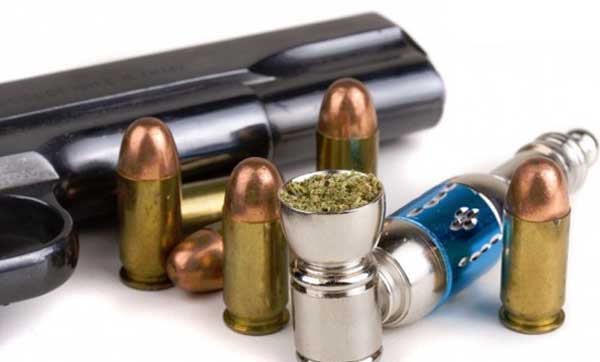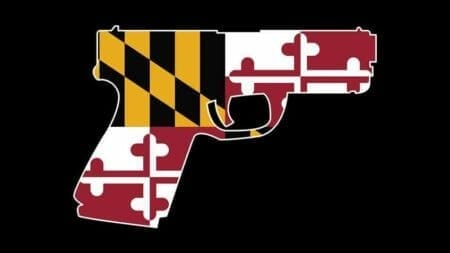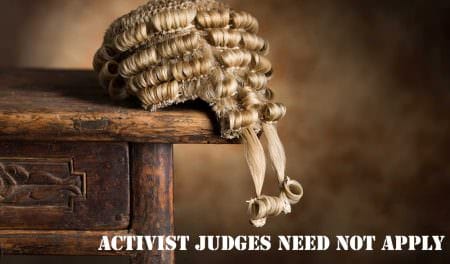In a recent video on his Four Boxes Diner YouTube channel, constitutional attorney and Second Amendment advocate Mark W. Smith provided an insightful analysis of the ongoing legal battles over gun rights in the United States.
As the Supreme Court prepares to address significant cases like U.S. v. Rahimi, Smith offered predictions on how the court might rule on issues related to “prohibited persons” and gun ownership under federal law 18 USC 922g. Here’s a breakdown of his predictions and why they matter to Second Amendment supporters.
The Context: Federal Gun Control & the Supreme Court
Smith begins by addressing the key issues at stake with 18 USC 922g, a federal law that restricts firearm ownership for certain groups of people deemed “prohibited persons.” These include individuals with felony convictions, domestic violence restraining orders, and other legal restrictions. The upcoming U.S. v. Rahimi case will challenge aspects of this law, particularly whether people subject to domestic violence restraining orders should be barred from owning firearms.
Smith highlights the importance of this case in setting a precedent for future interpretations of the Second Amendment. He believes that the current Supreme Court, known for its conservative leanings, will likely make significant changes to how this law is applied, especially in relation to non-violent offenders.
Four Categories of Convicted Felons & Gun Rights
Smith categorizes people affected by these laws into four main groups, each with different implications for gun rights:
- Non-Violent Offenders: This category includes individuals like Martha Stewart and Donald Trump, who may be convicted of non-violent felonies such as tax evasion or other white-collar crimes. Smith argues that the Supreme Court is unlikely to continue stripping these people of their gun rights, as there is no clear connection between non-violent crimes and the necessity to disarm individuals for public safety. He predicts that non-violent felons will retain their gun rights under future court rulings.
- Violent Offenders: On the other end of the spectrum are individuals who pose a significant threat due to their violent behavior or potential for violence, including those with serious mental health issues or a history of violent crime. Smith believes the court will uphold restrictions on these individuals, maintaining that public safety concerns justify disarming people who are deemed dangerous to themselves or others.
- Drug Traffickers: According to Smith, the court will likely treat drug traffickers as inherently violent, similar to how they might view organized crime figures. He points to historical analogies with prohibition-era bootleggers who often resorted to violence to enforce their illegal activities. The logic here is that drug traffickers pose a high risk of violence, which justifies restricting their gun rights.
- Drug Users: This group presents a more complex issue. Smith acknowledges that the court’s stance on whether simple drug use (without trafficking) should result in the loss of gun rights is less predictable. The comparison to historical regulations on being drunk with firearms suggests that some form of restriction may be applied, but it’s unclear how far-reaching these might be. He notes that this could be a contentious issue, especially given varying state laws and the evolving landscape of drug legalization.
The Role of Due Process & Red Flag Laws
Smith also emphasizes the importance of due process in determining gun rights. He discusses the potential implications of red flag laws, which allow for the temporary confiscation of firearms from individuals deemed a threat, often without the same level of due process afforded in criminal cases. Smith warns that anti-gun advocates might push for these laws to circumvent traditional legal protections, posing a significant risk to lawful gun owners.
What This Means for the Future
Smith’s analysis provides a clear view of the possible direction of Second Amendment jurisprudence under the current Supreme Court. For pro-gun advocates, his predictions offer hope that non-violent individuals will regain their right to bear arms, while highlighting the importance of vigilance in protecting due process rights against overreach by anti-gun legislation.
As the court continues to shape the legal landscape of gun rights in America, supporters of the Second Amendment should remain informed and engaged in these critical issues. Understanding the nuances of these legal battles will be key to ensuring that gun rights are protected for future generations.
Be sure to support and subscribe to Mark W. Smith on his Four Boxes Diner YouTube channel for more insightful analysis and updates on Second Amendment issues.






In regards to restraining orders the legal system must seriously examine the process. It is well known that some lawyers file for restraining orders as a matter of building a case for their clients. If a man has been judged a threat to his wife then his legal standing has been challenged. If a man proves to not be a threat to his former partner then no restraint nor loss of rights is in order.
Mark, not having read yet your book, “Israel Disarmed”, let me add some less than obvious facts (if you haven’t already) to the armed citizen situation in the Jewish State. Despite the recent lessening of some concealed carry license requirements by minister Ben Gvir, the government still maintains, what we Americans consider onerously tight regulations for civilian gun ownership. At the head of the government’s concerns: Twenty percent of the population are non-Jewish. Among them a sizable Arab population with family ties to the disputed territories and the surrounding countries. Only a minority of them serve in the IDF (mainly… Read more »
Our government doesn’t trust us with guns, they just haven’t figured out a way to disarm us without getting their asses shot off. In tactical terms it’s time for THE PEOPLE to make a preemptive strike. The massive influx of military age illegal aliens may be the strike force they want to build to take care of us. The war is planned, they just haven’t get their forces organized and deployed yet.
Just deny arms to musselmen. I’m good with that.
What the hell happened to Israel? I remember photos in my college textbooks showing Israeli citizens in a park, barbecuing, playing frisbee, lounging on blankets drinking beer, and every adult had an UZI over their shoulder or a pistol or revolver on their hip. Did Bebe do that? That’s not a good thing.
Gun laws targeting bootleggers did not come about untul the 1930’s, so there is no “historical analogue”; and thoae kaws are inherently unconstitutional. The author is engaging in the “interest bslancing” that SCOTUS has specifically forbiden.